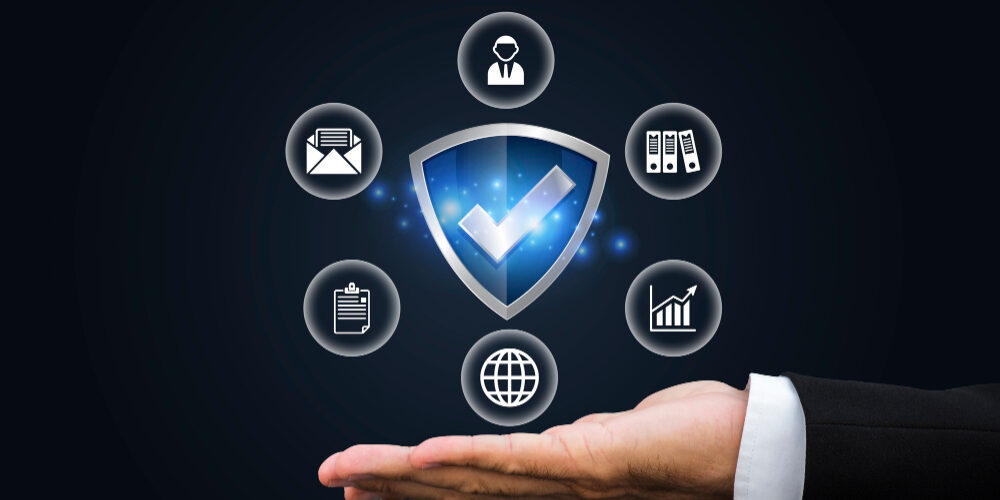Table of Contents
In today’s digital age, where convenience and connectivity reign supreme, protecting personal financial information has become more critical than ever. The increasing integration of technology into our daily lives has brought forth new challenges, such as cyber threats and data breaches, which can compromise our financial security. Let’s delve into the best practices and strategies to safeguard your valuable personal financial information, ensuring that your digital wealth remains out of harm’s way.
From understanding the evolving threat landscape to adopting safe online practices and embracing advanced security measures, we will equip you with the knowledge and tools needed to protect your digital wealth effectively.
Introduction Personal Financial Information
The convenience of online banking, shopping, and investment has transformed the way we manage our finances. However, it has also exposed us to potential risks that can compromise our financial well-being. With cybercriminals becoming more sophisticated in their tactics, it’s crucial to stay ahead of the curve when it comes to protecting your personal financial information.
Understanding the Threat Landscape
The digital world is fraught with dangers ranging from phishing scams and malware attacks to data breaches. Understanding the types of threats you may encounter is the first step toward fortifying your defenses.
Importance of Protecting Personal Financial Information
Your personal financial information is a goldmine for cybercriminals. From your credit card details to your social security number, this data can be exploited for fraudulent activities. Protecting it is not just a matter of security but also your financial stability.
Best Practices for Securing Online Accounts
Creating Strong and Unique Passwords
Passwords are your first line of defense. Use a combination of letters, numbers, and special characters. Avoid using easily guessable information like birthdates or names.
Enabling Two-Factor Authentication (2FA)
2FA adds an extra layer of security by requiring a second form of verification, such as a text message or fingerprint scan, along with your password.
Regularly Updating and Monitoring Accounts
Frequently update your passwords and keep an eye on your financial accounts for any suspicious activities.
Safe Browsing Habits to Prevent Phishing Attacks
Verifying Website Security (HTTPS)
Before entering any sensitive information, ensure the website’s URL starts with “https,” indicating a secure connection.
Exercising Caution with Email Links and Attachments
Phishing emails often contain malicious links or attachments. Verify the sender’s identity before clicking.
Avoiding Suspicious Pop-ups and Ads
Pop-ups and ads can sometimes be conduits for malware. Close them without interacting.
Securing Mobile Devices and Networks
Using Secure Wi-Fi Connections
Avoid public Wi-Fi networks for financial transactions. Opt for secured, private networks.
Setting Up Biometric Locks
Use fingerprint or facial recognition to lock your devices, adding an extra layer of protection.
The Role of Encryption in Financial Security
End-to-End Encryption for Messaging Apps
Use messaging apps that offer end-to-end encryption to keep your financial conversations private.
Encryption for Financial Transactions
Ensure the websites and apps you use for financial transactions employ encryption to safeguard your data.
Choosing Reputable Financial Apps and Services
Researching App Security Features
Prioritize apps with robust security features and a history of reliable performance.
Reading User Reviews and Ratings
Learn from other users’ experiences to gauge the security and usability of financial apps.
Regularly Monitoring Credit Reports and Statements
Detecting Unauthorized Activities
Monitor your credit reports and financial statements for any irregularities or unfamiliar transactions.
Reporting Suspicious Transactions Promptly
If you notice any suspicious activities, report them to your financial institution immediately.
Secure Storage and Disposal of Financial Documents
Importance of Physical Document Security
Keep physical financial documents in a secure location, such as a locked cabinet or safe.
Shredding Sensitive Papers Before Disposal
Before discarding old documents, make sure to shred them to prevent dumpster-diving identity thieves.
Educational Resources for Improved Financial Literacy
Recognizing Common Scams and Frauds
Educate yourself about common tactics used by scammers to target your financial information.
Staying Informed About Emerging Threats
Stay updated on the latest cybersecurity trends and threats to maintain your financial safety.
The Future of Financial Data Protection
Trends in Biometric Security Measures
Biometric data, such as fingerprints and retinal scans, are being integrated into security systems for enhanced protection.
Advancements in Artificial Intelligence for Threat Detection
AI-driven algorithms can detect unusual patterns and behaviors, alerting you to potential threats.
Conclusion
Protecting personal financial information is not an option; it’s a necessity in today’s interconnected world. By implementing the best practices outlined in this article, you can significantly reduce the risk of falling victim to cybercrimes and ensure that your digital wealth remains secure. Stay informed, stay vigilant, and take proactive steps to safeguard your financial future.
Frequently Asked Questions
1. What is the first step in protecting my personal financial information? The first step is to create strong and unique passwords for your online accounts and enable two-factor authentication whenever possible.
2. How can I identify a phishing email? Phishing emails often ask for sensitive information or contain suspicious links. Always verify the sender’s identity and avoid clicking on unknown links.
3. Why is monitoring credit reports important? Monitoring credit reports helps you detect any unauthorized activities or accounts opened in your name, allowing you to take immediate action.
4. Are mobile banking apps secure? Mobile banking apps can be secure if they have robust security features, regular updates, and are downloaded from official app stores.
5. What does the future hold for financial data protection? The future involves more advanced biometric security measures and the integration of artificial intelligence for better threat detection.


